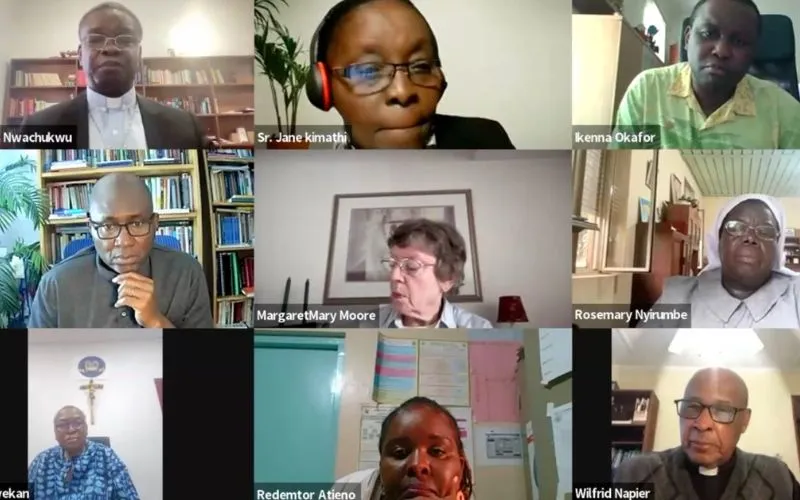He added, “This diversification was a fruit of the Second Vatican Council because, for centuries, the diplomatic service of the Holy See was composed of people from royal families. The Academy was called Pontifical Academy of the nobles. But then gradually, it was opened up to non-nobles that are Italians, to non-nobles that are European, and to non-nobles that are now from other parts of the world.”
Organized by the Pan-African Catholic Theology and Pastoral Network (PACTPAN) in collaboration with the Conference of Major Superiors of Africa and Madagascar (COMSAM), the August 16 palaver explored the theme “The Role of Papal Representatives in a Missionary and Synodal Church-Family of God in Africa”.
The palaver was pegged on Chapter 13 of the Synthesis Report, which affirms that the reform of the Curia is “an important aspect of the Catholic Church’s synodal journey”.
In a concept note that was shared with ACI Africa ahead of the August 16 event, organizers of the palaver raised questions such as “are the opinions and perspectives of African bishops individually or through regional and continental episcopal bodies taken into consideration in decisions made in Rome for the Universal Church or for Africa?”
In his presentation, Archbishop Nwachukwu underlined the commitment of the Church to be as diverse as possible in constituting the Roman Curia. The Nigerian Catholic Church leader said, “At the moment, there are about 10 Apostolic Nuncios from Africa. Our latest Nuncio is going to be ordained next month. He is from Burkina Faso.”
The Vatican official said that lately, the Holy See has also been extending diplomatic roles to women.
He said that women’s participation in diplomatic service “is already existing”, and added, “It may not be at the level we expect, but we have women that have been sent to represent the Holy Father especially where no sacramental roles are involved.”
Hinting on how the diplomatic academy identifies candidates, Archbishop Nwachukwu said Bishops sometimes identify a young Priest with an exemplary record in the Seminary.
The candidate must be brilliant and capable of learning different languages, the Vatican-based Catholic Archbishop said, adding that the Secretariat of State also goes out looking for young Priests who are capable of adapting in different environments.
“The problem that the Secretariat of State faces is that a Bishop finds it difficult to release a great Priest because he also would like to keep him as his successor. The academy may then go to the Seminaries, talk to the Rectors to identify students who have got those qualities, and write to the Bishops expressing their desire to admit the identified candidate into the academy,” he shared, adding that the candidate must be below 32 years old.








